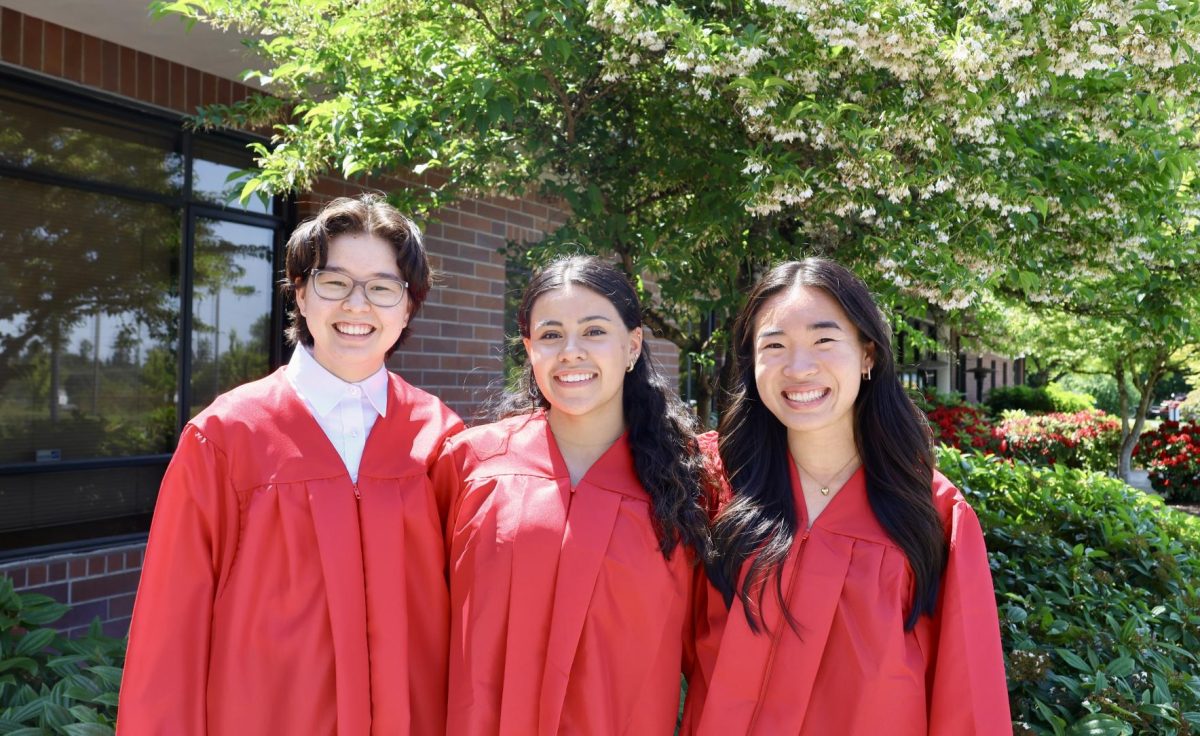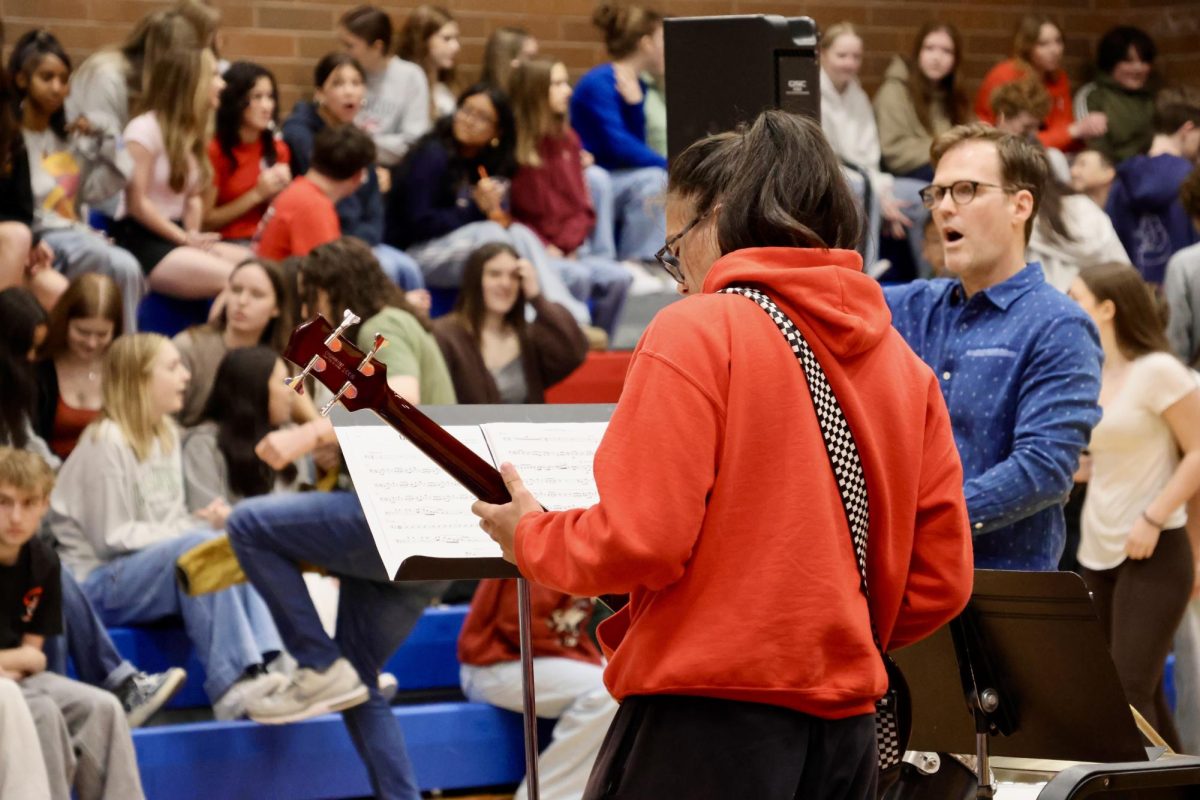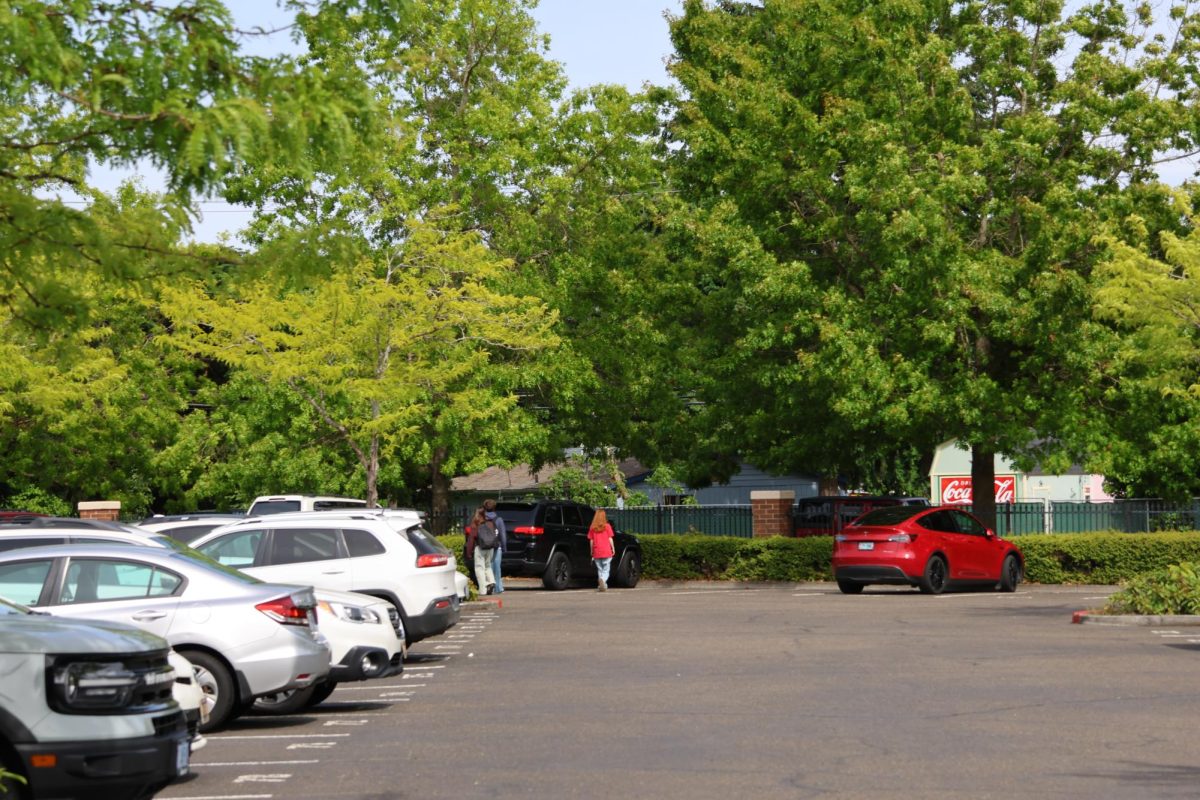In order to increase the amount of teaching centered around climate change at La Salle, a new Climate Studies course will be coming next year, taught by Science Department Chair and chemistry teacher Mr. Matthew Owen.
Open to seniors and juniors, as both chemistry and physics are prerequisites to taking the class, the elective will replace Geology. While this semester-long course differs from most classes at La Salle in how it’s structured, with students leading most of the research, there will be four main units covering the climate system, the drivers of climate change, its consequences, and what the future looks like through a climate-science lens.
“I just think the information is so important,” Mr. Owen said. “It’s so critical that we know about this and we know how we can address it — mitigate it and the complicated factors involved.”
For Mr. Owen and the science department, recognition of the need for more climate-focused education came after a Falconer article from then-junior Maddie Khaw, titled “As Climate Crisis Worsens, La Salle Curriculum Lags Behind.” The article led to a department meeting, he said, where the consensus was “we can do better and we need to do better.”
Coming to the realization that change needed to occur allowed Mr. Owen to reflect on the emotions that the article was bringing forth, and decide what he wanted to do about it. “I felt upset,” he said. “And then you sit down and you think about it, and you read what the kid has written, and you’re like ‘this is really on point. Why aren’t we doing this?’”
From there, the science curriculum was updated in order to reflect the need for broader education of climate change within the science department. In 2021, a professional development session – led by the science department – addressed what aspects of the physics, chemistry, and biology courses would be expanded, including the addition of a Honors Chemistry project centered around the abiotic effects of climate change as part of a unit on gases and energy exchange.
“I think that [Khaw’s article] was the first moment of recognizing the need, which is unfortunate… for me, that it took me that long to think about it, recognize that,” Mr. Owen said. “I’m really excited to be able to offer a course that builds off of those topics, that builds off a student’s understanding.”
According to Mr. Owen, this class is one step in the direction of that goal.
For the new course, Mr. Owen has the overall goal of giving students the tools to “leave with a strong foundation to address the complexities of climate change,” he said. Not only does he want to provide education about the science behind climate change, but he wants to offer an outlet for students to find real solutions to the problems affecting our planet and our communities.
One of the main roadblocks in addressing climate change that Mr. Owen is hoping to overcome is the idea that there’s nothing to be done about it. “There’s this acceptance that, ‘well, there’s nothing that we can do’ when that’s not necessarily true,” he said.
Instead, Mr. Owen wants to use this course to instill the idea that progress is very possible from the individual level, and not only that, but “we owe responsibility to the future generations to make sure that we are leaving things better than we found it,” he said.
In light of encouraging students to exercise their critical thinking skills in order to take a new approach to addressing climate change, Mr. Owen’s teaching method for this class will be centered around “simply providing knowledge and information to students” and then allowing them to be “the drivers of it in the learning process.” With most of the research being primarily student-led, it also gives participants an opportunity to learn valuable skills such as evaluating a source’s credibility and accuracy.
He plans to localize a lot of the information presented by applying it to Oregon, in order to “drive home the impacts that it has to us in this area.” Since it’s also a “global topic,” he will include information about how climate change is affecting other areas in addition to relating aspects of the class to life in the Pacific Northwest.
With the notion that climate change is such a widespread and prevalent issue, Mr. Owen hopes that ideas from this class will serve as foundational knowledge that can then be applied and expanded in a variety of ways throughout the community.
“What I would really love is for there to be a lot of cross-curricular opportunities,” he said. “It would be incredible for this course to kind of branch out into others and impact others.”
For example, he hopes that climate change will eventually be incorporated into other classes outside of the science department, and on an even larger scale, curriculum from the class could be implemented into an AP Seminar or AP Capstone program, an idea that was brought up in an Academic Council meeting.
Prior to taking on this class, Mr. Owen has exclusively taught chemistry, and said that though this class is different — both in structure and content — to the way that he approaches teaching chemistry, he hopes that the challenges it presents will cause him to adapt and improve as a teacher.
“I think it’s really going to help me grow as an educator,” Mr. Owen said. “I’m excited. I’m nervous. I’m ready, as well.”
Mr. Owen is optimistic about the impact that this new course will have on the La Salle community.
“I think that, with myself included, we can shift our thinking, our perspective — as a community, as individuals, as a class,” he said. “That would be pretty incredible.”











Steve • Mar 6, 2024 at 11:10 pm
This is great! I’m so happy to LS focusing on this topic. I work on addressing this issue via carbon reductions in construction and development and would be happy to help provide real world applications.